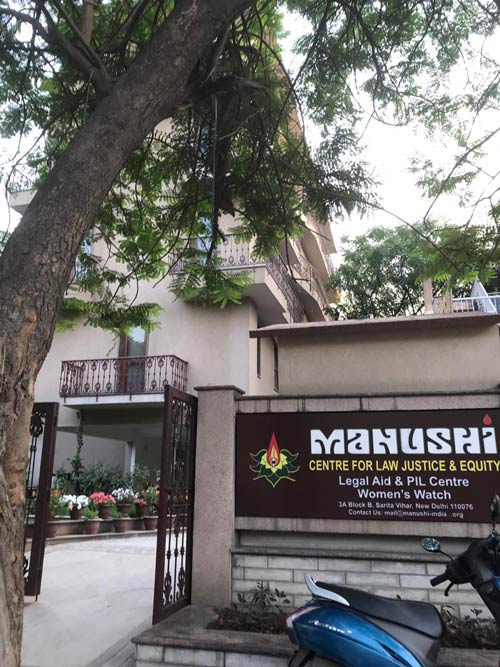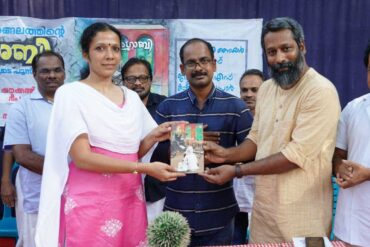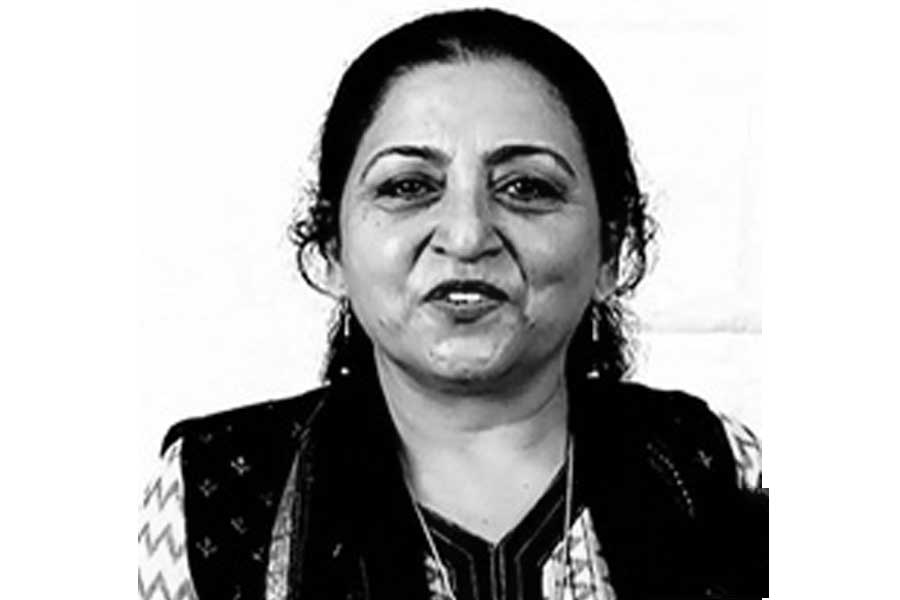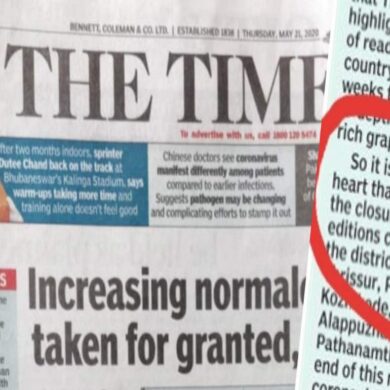A Muslim man, with a Muslim beard, and a Muslim face sits in the dirt, bewildered. He was caught with beef (he says it was buffalo meat), was beaten and forced to eat pork by his tormentors. Hindus don’t eat beef, Muslims consider pork as haram. A video depicting this circulates on Twitter as India with an electorate of 900 million votes in a new government in an exercise that started April 11. It shows if the poor belong to a minority community or are Dalit, they can be beaten and bullied.
The dirty online games pay off, it seems.
A man, who hacked a Muslim to death in Rajasthan in 2017, filmed the act and uploaded it on social media, is contesting elections and will try to get into India’s Parliament, which owes its existence to Mahatma Gandhi’s path of non-violent, non-co-operation with British rulers. While the British are derided for what they did to Indian culture, more hated are the Mughals who are considered as foreign despite making India their home. The Mughals, of course, were Muslim.
While historians such as Audrey Truschke have tried to destroy some of the myths about Mughal ruler Aurangzeb, people have held on steadfast to their biases.The beef-pork-Muslim man video is circulating on the day I am set to meet Madhu Kishwar. I return to her as a journalist after a gap of five years; I interviewed her for Business Standard in 2014, when it was almost certain that Narendra Modi, then leader of India’s largest majoritarian party was set to sweep to power. Kishwar had backed Modi unabashedly, visiting Gujarat and penning a book: Modi, Muslims and Media.
But the academic who took contrarian positions, stood against the Miranda House beauty pageant, opposing beauty standards in a world which hadn’t heard of body shaming, and was counted as among India’s second crop of feminists — she said dowry is woman’s right as she doesn’t inherit from parents — is more than a Modi-backer today.
Kishwar is a Twitter warrior.
Perhaps Modi’s only feminist warrior if there’s any such thing.
She takes positions on Muslims, the police, media, academia, and Kashmir.
People I spoke to, including the police, are wary of the power she wields online.
Fact check
The police have refuted Madhu Kishwar’s tweets at least twice: Gurugram Police’s official Twitter handle refuted her post and said the men arrested for throwing stones at a bus full of schoolchildren in the Karni Sena protest against the Deepika Padukone-Ranveer Singh starrer, Padmavat, were not Muslim. Kishwar had named five Muslim men. In the second instance, Jammu & Kashmir Police refuted the tweet on the transfer of a Superintendent of Police or SP for Burhan Wani’s killing and said no such thing had happened. The police denial was re-tweeted by then Director General of Police, Shesh Paul Vaid, who Kishwar named as the one responsible for the transfer of the SP.
Others too have taken on the professor.
India’s journalism space, which now has a fair number of fact-checking sites, has strived to verify her online posts. “Madhu Kishwar’s WhatsApp University” is how Alt News, a widely-respected site that debunks fake news, titled their fact-check on the academic. Boom, another fact-checking site, put out the police denial of the Burhan Wani post. Kishwar apologised for giving wrong information in the Gurugram stone throwing. She says the tip-off came from a senior IAS officer from Chandigarh who she cannot name because he can lose his job.
“Firstly, you can’t trust the police. My track record is not one of telling lies. The Indian police lies through its teeth all the time. Maa, baap ko bech ke khaa jaye Hindustan ki police. They will give out information that they have been ordered to give by their political bosses. But I still didn’t challenge because I didn’t have first-hand information, the way I did, for example, in the case of Delhi’s anti-Sikh riots in 1984. The police said (in the 1984 riots) 600 people killed. I was doing relief work, I stuck my neck out and said minimum of 2,500 people in Delhi alone have been massacred”, says Kishwar. “So police is hardly the most credible.”
“But the moment police said it (arrest of Muslims in Gurugram stoning of bus) hasn’t happened, and because I didn’t have first-hand information in the way I had in the case of Delhi riots or in the case of Kathua….”
Kishwar gets heated up but evades the direct question of her tweet on the SP’s transfer after the Wani encounter, describing it as a minor thing. She says she has travelled to Kashmir and investigated ground realities in the Kathua case and is challenging the police version on it. “I have facts in Kathua. But there (Gurugram), I didn’t have facts. So what did I do? I apologized,” she says. “The J&K police has one of the worst track records. I consider police as it is constituted one of the biggest internal security threats,” says Kishwar.
Kishwar is writing a book on Kathua and says that her book will prove that the Kathua case is not what it seems to be. The noun invokes multiple emotions in India, just as Nirbhaya did. Kathua is a place in Jammu, where an underage girl from a nomadic Muslim community was sedated and allegedly raped by many men inside a Hindu holy place. Sections of Jammu rose in support of the accused.
Disinformation
In India, lots of things, of late, have not been quite what they seem. Early on, in the Modi regime, journalist Swati Chaturvedi exposed how the ruling political party unleashes a systemic troll attack on critics. Similarly, fact-check sites have proved that hundreds of handles can re-tweet a tweet to attack a Modi critic or support a right-wing post. Facebook on April 1 took down several pages full of bigotry, misinformation or hate, spurring a slew of investigative news reports that showed the pages to be a complex network of making money and spreading propaganda. Madhu Kishwar’s Twitterverse has managed to survive.
This reporter contacted Gurugram Police Commissioner Muhammad Akil and former Director General of Police, Jammu & Kashmir, Vaid — both are among the country’s top police officials — to find out what made them refute Kishwar’s tweets but not take any further action.
“She was spreading false information, no SP was removed,” said Vaid, who said he was surprised to be named in Kishwar’s tweet, and wondered if she had a personal grudge against him. Vaid is now Traffic Commissioner of Jammu & Kashmir. “Jhooth agar koi spread kar raha hai, toh ham clarify karate hain. (When someone is spreading a lie, it is our duty to clarify)” said Mohammad Akil, Police Commissioner, Gurugram.
Formidable foe
Kashmir police officer Vaid said he didn’t want to be drawn in any further battle with Kishwar. Top cop Akil said since he wasn’t commissioner when Kishwar tweeted, he did not take action. A tweet that misinforms against a community is dealt with Section 153 of the IPC. However, conviction rates in this section are low because of poor investigations and prosecution. T he J&K Police had filed a case against an earlier tweet by the man Kishwar says told her about the police situationpost-Wani.
What someone can do is file a criminal defamation suit against tweets. This is what Rising Kashmir Editor Shujaat Bukhari did, after Kishwar named him on Twitter as someone who spews venom against India and toes the ISI line on shootouts such as Burhan Wani’s. The Delhi academic resisted a non-bailable warrant in the case by moving the Supreme Court. Bukhari is now dead, shot down by militants. It is unclear if his devastated kin will be keen to pursue the defamation charge.
All this makes Kishwar a formidable foe.
 Two members of academia regarded her as vindictive. Kishwar fought publicly with the Center for the Study of Developing Societies, her earlier place of work. She is now lodged in the Indian Council of Social Science Research as its council member and a Fellow on the Maulana Azad national fellowship. While accusing the police, the media and academics of being dishonest, Kishwar is not above using the Urdu swear word haramkhor (bastards and thieves) for her peers, professors of Jawaharlal Nehru University, a liberal arts university Narendra Modi government targeted since it assumed office.
Two members of academia regarded her as vindictive. Kishwar fought publicly with the Center for the Study of Developing Societies, her earlier place of work. She is now lodged in the Indian Council of Social Science Research as its council member and a Fellow on the Maulana Azad national fellowship. While accusing the police, the media and academics of being dishonest, Kishwar is not above using the Urdu swear word haramkhor (bastards and thieves) for her peers, professors of Jawaharlal Nehru University, a liberal arts university Narendra Modi government targeted since it assumed office.
Kishwar says “everyone is scared of her because she isn’t scared of anyone”. And of course, she claims, she herself has no proclivity to power. “I am not a durbari (member of anyone’s court or group of followers),” she says, at her house in Delhi. She illustrates this by pointing to her brutal attack on Narendra Modi’s first ministerial appointment: Smriti Irani as minister for HRD, which oversees education. Kishwar had come down heavily on the move, saying Irani was not capable of managing even a jam and pickle ministry.
Modi supporters
Taking on Modi doesn’t mean Modi supporters aren’t drawn to Kishwar.
Meena Dadha, who calls herself a hardcore Marwari Jain from Kolkata and married into the Dadha family in Chennai, runs the Mukti M. S. Dhada Foundation, and has donated Rs 2 lakh to the Manushi building fund. Manushi is Kishwar’s online magazine. The Manushi Trust takes up social causes is now now housed in a neat, multi-storied building.
“I am a great fan of Narendra Modi, a hard-core blindest follower,” is how Dadha, 71, describes herself.
Dadha says she sought Kishwar out after reading her book on Modi, and offered to raise money for her every year. Manushi building fund got donations from many people, each listed on Manushi website. Himachal Futuristic Communication Limited has donated Rs 10 lakh; small donations are docked against Vande Matram Team, IIT Madras, and Shefali Vaidya. A big contribution to the Manushi building is from Kishwar herself, who sold off an apartment and put in her book royalties besides taking a loan.
My long interview with Kishwar ends with her hugging me saying I have survived her.
She says Indian culture has a dharmic civilization code which recognizes the divinity in people. “I reported on Beti Bachao, Beti Padhao. Killing the girl child is also part of what we are,” I say. “That’s because we were trying to save our women from Muslim invaders. Do you know how many women killed themselves in Chittorgarh jauhar? It would not have happened if Akbar hadn’t decided to include them in his harem,” Kishwar says.
Kishwar says the narrative on social media has now moved beyond Narendra Modi. She is part of a Jammu collective that is working against a Kashmiri takeover. She also says a Hindu charter of demands has been put up.
Kishwar vehemently denies animosity towards Muslims. She says her Muslim neighbours are her best friends.
I believe this.
The serene and posh Sarita Vihar neighbourhood with its neat parking slots isn’t going to have any people forcing some one to eat food frowned upon by their religion.
The rest of India, meanwhile, is on slow burn as social media normalises violence – in words and visuals.







